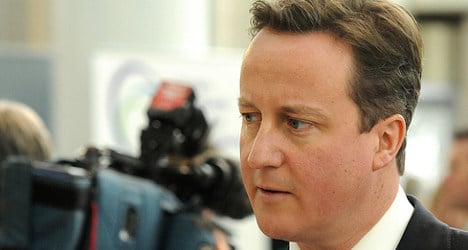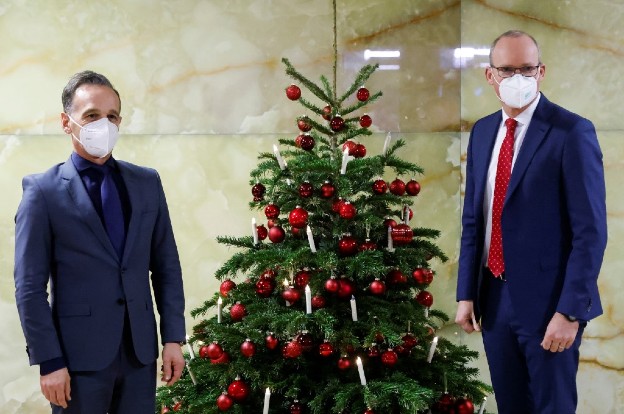Cameron's tour begins early on Monday with his first official visit to Madrid since taking office in 2010 and he will then travel to Paris on Monday evening to speak to French President François Hollande.
Cameron will visit Berlin at the end of the week for "further discussions about taking forward his (EU) reform agenda," Downing Street said.
Before leaving the United Kingdom on Monday, Cameron said he expected the 27-nation grouping would have to submit to treaty change despite top EU officials previously saying there was no appetite for it.
Cameron will also discuss the civil war in Syria during his talks with Spanish premier Mariano Rajoy, French President Francois Hollande and German Chancellor Angela Merkel, his office said.
Tom Burridge of the BBC in Madrid highlighted the importance of this week of diplomacy on the part of the British prime minister.
"If Mr Cameron is to achieve his goal of a more flexible European Union, in which some countries, and in particular non-eurozone members like Britain, can opt-out of certain European laws and directives, he'll have to win-over these key European players," he said.
"However the priority right now, for Germany, France and Spain is how to fix the economic crisis within the eurozone. And for that to happen, all three countries are committed to the idea of more Europe, not less."
Cameron sent shock waves through the EU in January when he set out plans to wrest back powers from Brussels and to then put Britain's reshaped membership to an in-out referendum by the end of 2017.
In an interview with five European newspapers being published on Monday, Cameron called on the EU to bring in "change that all of Europe can benefit from".
"We are a major European power, a major European player. But do we think that the European Union has sometimes overreached itself with directives and interventions and interference?
"Yes, it has. And that needs to change," he said.
"I think this organisation is ripe for reform. I think we're in a global race where we have to compete with (countries like) India, China, Indonesia and Malaysia," he said.
He cited the agreement by EU leaders in February to cut its 2014–2020 budget as an example of recent reformist moves by the bloc.
Cameron also told the journalists from the five newspapers including Spain's El Mundo that he believed alterations to the EU's treaties would also be likely.
EU president Herman van Rompuy warned in February there was no appetite among EU leaders for any major treaty change, insisting the focus in coming years would be on shoring up the eurozone — the 17 countries that use the single currency that Britain is not part of.
But Cameron insisted: "I think there will be treaty change."
"The eurozone in my view needs to have further treaty change, and just as eurozone countries will argue that it's necessary to have treaty change, I think it's perfectly legitimate to argue that non-eurozone countries might need to have treaty changes that suit them," he added.
The British premier would also discuss Syria with the three EU leaders and was "keen to find ways to advance a political solution and to up the pressure on (President Bashar al-Assad to make him realize there is no military solution," Downing Street said.
He would also discuss his priorities for this year for the G8 group of industrialized nations, of which Britain holds the rotating chairmanship, including EU-US trade, tackling tax avoidance and greater transparency, Downing Street said.
Britain hosts a meeting of G8 foreign ministers this week.



 Please whitelist us to continue reading.
Please whitelist us to continue reading.
Member comments